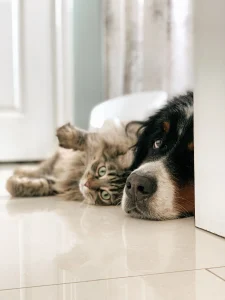Blog

How Do I Know If My Dog Is in Pain?
Dogs often carry pain quietly, which is why the early signs can be easy to miss. Many dogs don’t yelp

How to Prepare to Put Your Dog to Sleep
Deciding that it is time to say goodbye to your dog is emotionally exhausting. Many families choose to put their

How to Know if Your Cat is Ill
Caring for a cat often means noticing the quiet, subtle ways they tell us something isn’t quite right. Unlike dogs,

Coping with Pet Loss
Losing a beloved pet is one of life’s most profound and heart-wrenching experiences. Whether it’s a sudden loss or a

What is Used for Euthanasia in Animals? A Peaceful Farewell
The bond we share with our animal companions is profound. They bring joy to our lives, offer unwavering companionship, and

Saying Goodbye To Your Cat
The bond we forge with our feline companions is truly special. They weave their way into the fabric of our

A Guide to Dog Euthanasia – The Heartbreaking Decision
Saying goodbye to a beloved dog is one of the hardest decisions a pet owner ever faces. Euthanasia, often referred

Does A Dog Feel Pain During Euthanasia?
o see our dogs’ health declining can be a very upsetting time as a dog owner. Due to a terminal

How Does Dog Euthanasia Work? Understanding the Process and Coping with Loss
Euthanasia, often referred to as “putting to sleep” or “putting down,” is a procedure aimed at providing a humane and

How old is really my pet?
This is the first of a three parts series about how our pets age, what are the most common age

If It Should Be…Making the Decision to Say Goodbye to Your Pet
We understand how difficult can be to make the decision to say goodbye to our loyal companions. We have gone

Feline Hyperthyroidism
Hyperthyroidism is the most common metabolic disorder in cats and it is an increased production of thyroid hormones from the
